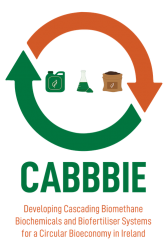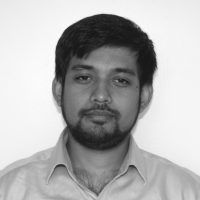
Senior Research Fellow – CEEES
Job Description
University College Cork invites applications for an experienced Senior Research Fellow to lead a new high impact research project titled Developing Cascading Biomethane Biochemicals and Biofertiliser Systems for a Circular Bioeconomy in Ireland (CABBBIE) in the area of circular bioeconomy systems focusing on anaerobic digestion and microalgae biorefinery. The position of Senior Research Fellow is in the area microalgae selection from native environments, microalgae cultivation and extraction of metabolites. The position is co-funded by Sustainable Energy Authority of Ireland (SEAI) and Department of Agriculture, Food and the Marine (DAFM). The project is partnered by Dingle Creation and Innovation Hub. The successful candidate will work on a research project in the Environment Research Institute for 3 years at 0.25 FTE. The researcher will work closely with the PI and a team of six full time academics across School of Engineering and Architecture, the Circular Economy, Energy and Environmental Systems (CEEES) research group within the SFI MaREI centre for energy, climate and marine and Cork University Business School as well as three PhD students and one postdoctoral researcher. The researcher is expected to publish independently and together with the lead researchers and students of the CABBBIE project team, present research papers at workshops and international conferences, and contribute to popular dissemination of the research results. S/he will also manage doctoral students and coordinate with post-doctoral researchers at UCC’s Environmental Research Institute.
Role Description
The Senior Research Fellow should possess a degree in Biotechnology/ Microbiology with a postgraduate doctorate qualification in Microbiology/Environmental Microbiology/Marine Biotechnology, and proven experience in microalgae isolation from native environment, microalgae cultivation and extraction of metabolites. Microalgae selection and biorefining is central to this research and experience in microalgae species selection, culture optimisation, reactor technology engineering and renewable-energy integration is required. Proven experience with characterisation of extracted metabolites (lipids, proteins, carbohydrates) will be an advantage. The applicant must display an understanding of alkaliphilic microalgae and native microalgae species, especially around Ireland and the British Isles. Previous experiences in laboratory optimisation of microalgae cultivation using design of experience, scale-up of laboratory experiments and development of pilot-scale facilities are desirable. Supervisory experience, leadership, stakeholder engagement experience and excellent communication skills will also be a strong advantage. The ideal candidate will have relevant postdoctoral experience, a PhD and experience of supervision and collaboration. The fellow will have experience in all areas of the microalgae biorefining including understanding the need of local bioeconomy and industries, future directions and policy supports and a developed understanding of the state of the art current research. The Senior Research Fellow is expected to publish independently and together with the CABBBIE project team, present research papers at workshops and international conferences, and contribute to popular dissemination of the research results. At a broader level the Senior Research Fellow will also promote and raise awareness of photosynthetic biogas upgrading as a cascading technology for producing food, biochemicals and biofertiliser using anaerobic digestion and microalgae biorefinery and the unique infrastructure and research capabilities in the wider regional and national business community. The Senior Research Fellow will foster networking with other Institution’s initiatives both nationally and internationally and manage and provide reporting as required by the CABBBIE Executive Management Team. The Senior Research Fellow is expected to ensure that the work package and the project operate to the highest international standards and integrity.
Key Accountabilities
The successful candidate will be expected to:
- Manage, coordinate, and take responsibility for the overall success of the CABBBIE.
- Have full operational responsibility for the management of the relevant milestones and deliverables of CABBBIE.
- Operational responsibility for the delivery of CABBIE.
- Take responsibility, either individually or in collaboration with others, for preparing bids for research funding.
- Independently and proactively identify research projects to be carried out individually or by a team.
- Act as the driver of further research projects and outputs.
- May contribute to teaching with the agreement of the Head of School/College.
- Raise significant R&D funds as a Principal Investigator and may be running an R&D activity.
- Be expected to carry out any additional duties as may reasonably be required within the general scope and level of the post.
Essential Criteria
The ideal candidate will have:
- A PhD qualification and extensive relevant research experience in the area of Microbiology/Environmental Microbiology
- A track record of securing competitive funding as a Principal Investigator and independently winning substantial research funding on an ongoing basis and driving a research agenda.
- Experienced leader of research projects and outputs in microalgae biotechnology, marine biotechnology, and circular bioeconomy.
- A track record of high-quality peer review international scientific publications.
- Demonstrable achievement of academic excellence.
- Strong leadership skills and ability to manage a team of experts.
- A track record of making contributions to professional bodies, national/international academic community, the University (as appropriate).
- Expertise in at least one of the following – microalgae biotechnology/biorefining or marine biotechnology. Desirable Criteria
- Experience of working with industry, academia, research centres and non-governmental organisations in a muti-disciplinary environment.
- Experience of working with any national (SEAI/SFI/EPA/DAFM)/ international (INTERREG/Horizon Europe) funded projects.
- Should have teaching experience and have made significant contributions to the University.
- Demonstrated ability to elicit sustained involvement from diverse stakeholders and manage collaborations among academia, industrial and/or government organisations.
- Should hold experience in technology transfer (i.e. patents / licensing spin offs) where relevant. Please note that Garda vetting and international police clearance check may form part of the selection process.
Closing date for receipt of applications is 12 pm on Thursday 14th September 2023.
CVs and handwritten forms will not be accepted.
Late applications will not be accepted.




